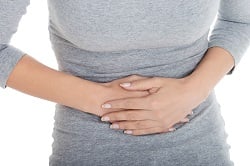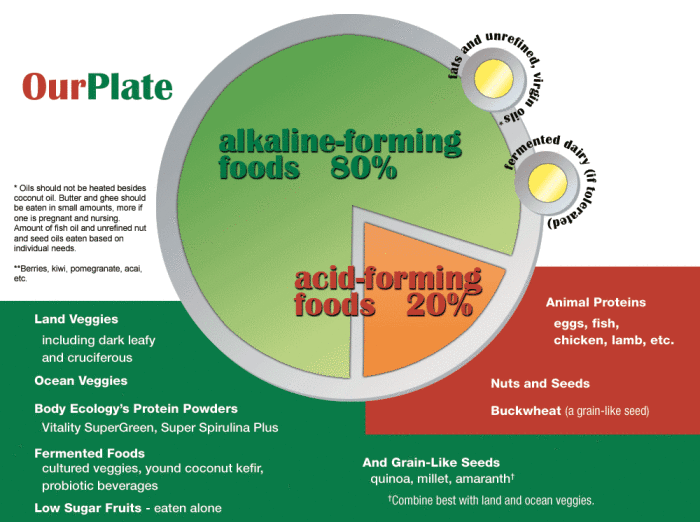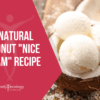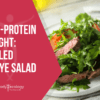Prevent Gallstones Naturally? The Answer Is in Your Gut
Gallstones are stones—or deposits—that form within the gallbladder. They are the most common problem that affects the gallbladder.
According to research recently published in the Journal of Clinical Gastroenterology, those with gallstones tend to have a sluggish digestive system.
In addition to food moving slowly through the gut, those with gallstones are also more likely to have bacterial overgrowth in the small intestine.
Small Intestinal Bacterial Overgrowth Linked to Gallstones
Gallstones are uncomfortable and painful. If you want to avoid this common health issue, start by rehabilitating the health of your gut.
Small intestinal bacterial overgrowth (SIBO) occurs when bacteria decide to build communities within the small intestine—rather than moving through to the colon.
SIBO makes the intestinal wall leaky and inflamed. It can lead to iron deficiency or vitamin B12 deficiency. Over the long term, there is evidence that SIBO is related to chronic fatigue syndrome and fibromyalgia.
According to recent research, bacterial overgrowth in the small intestine may also be involved in the development of gallstones. (1) Once gallstones grow large enough to generate symptoms, the gallbladder is often removed.
Symptoms of gallstones (large enough to clog the bile duct) include:
- Intense pain in the upper right corner of the abdomen
- Pain in the center of the abdomen, just beneath the breastbone
- Pain between the shoulder blades
- Pain in the right shoulder
When the gallbladder has been removed, one common side effect is loose stool or diarrhea.
Removing your gallbladder can also make it harder to digest fat. This is because the gallbladder stores and releases bile into the small intestine. Bile is an alkaline substance that helps with the breakdown and digestion of fat.
5 Ways to Prevent Gallstones, Naturally
The Body Ecology Diet has been specifically designed to control bacterial and yeast overgrowth. As research shows, there is a significant relationship between bacterial overgrowth and the development of gallstones.
Thus, restoring balance to your inner ecosystem may not only be the key to restoring balance to your whole body—it may also prevent gallstones.
There are five steps you can take to improve gut health and reduce gallstone formation:
- Remove common irritants from the diet, like gluten, dairy, and high-sugar foods.
- Supplement with a full spectrum of enzymes before each meal to assist in the movement of food through the digestive tract.
- Add cultured vegetables and coconut water kefir to each meal.
- Eat until you are 80% full, then stop. This ensures that you will have the digestive prowess to break down and assimilate the food you eat.
- Food-combine properly at each meal.
What To Remember Most About This Article:
Gallstones are the most common problem that affects the gallbladder. Research notes that gallstone sufferers often have a sluggish digestive system. Gallstone sufferers may also have bacterial overgrowth in the small intestine.
Small intestinal bacterial overgrowth (SIBO) can cause a number of health issues—including leaky gut, vitamin deficiency, and even chronic fatigue syndrome or fibromyalgia over the long-term. SIBO may also contribute to gallstone formation.
As you rehabilitate your gut to correct bacterial overgrowth, you can reduce or prevent gallstones naturally with these five steps:
- Remove dietary irritants, like gluten, dairy, and high-sugar foods.
- Take a full spectrum of enzymes before every meal to help move food efficiently through the digestive tract.
- Add friendly bacteria, like cultured vegetables and coconut water kefir, to each meal.
- Eat only until 80% full to allow your body to better break down the food you eat.
- Food-combine for better digestion using The Body Ecology Diet guidelines.
- [product id=”22″]
- [product id=”1″]
- [product id=”3″]
- [product id=”13″]
REFERENCES:
- Kaur, J., Rana, S. V., Gupta, R., Gupta, V., Sharma, S. K., & Dhawan, D. K. (2014). Prolonged Orocecal Transit Time Enhances Serum Bile Acids Through Bacterial Overgrowth, Contributing Factor to Gallstone Disease. Journal of Clinical Gastroenterology.










